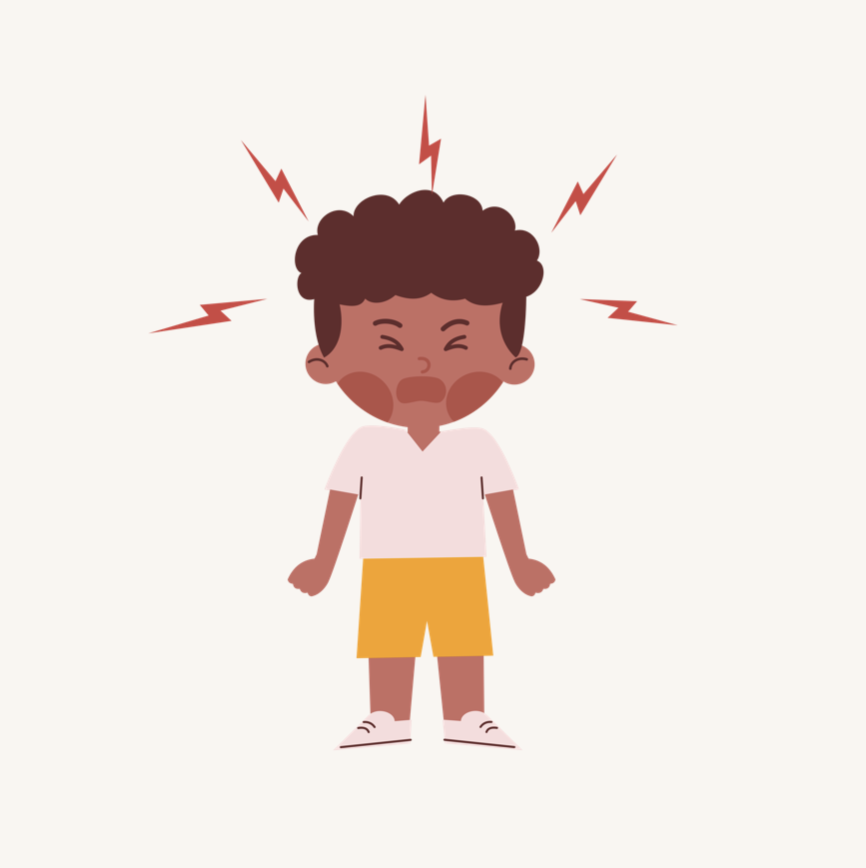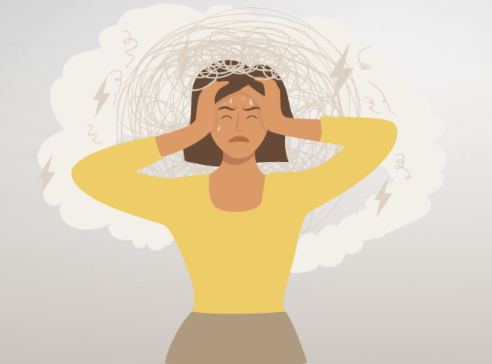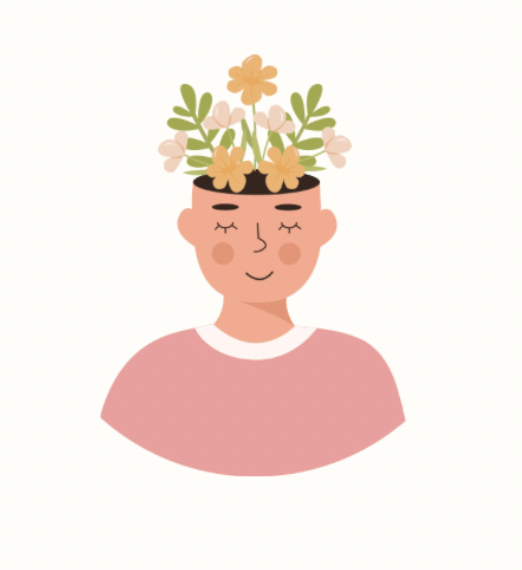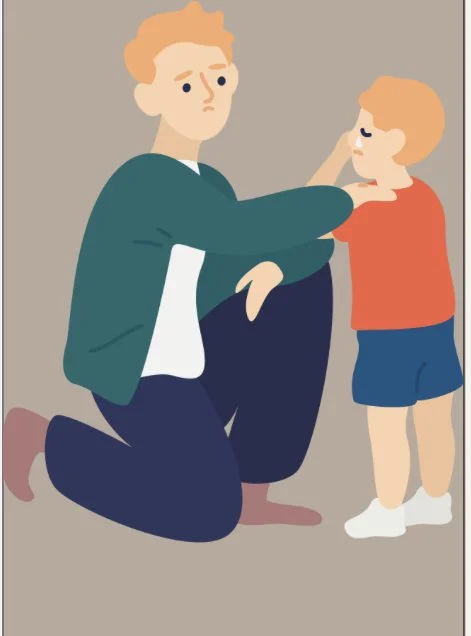
OUR BLOG
Why You’re Over-Reacting By: Cat Gouge MS,APC
“When you find yourself having an emotion that is outsized considering the situation, explore what preference you are turning into a must – what want you have allowed to mask as a need. Remind yourself that you can supplant this false self-statement with one that is true – that there are very few things you need and what you are demanding at this moment is likely not one of them.”
The Parenting Dance of Detachment By Cristine Seidell, LPC, CCH
Ahhh..the sound of a fresh and new year is fully in everyone’s ears right now and aside from exercise, diet and finances, relationships come in as one of the top areas people want to improve.
Embracing the Magic of Holiday Nostalgia: A Therapeutic Journey Back in Time by Madison Reed
As the holiday season envelops us in a blanket of twinkling lights and festive cheer, there's something truly magical about the power of Holiday nostalgia. Beyond the presents and decorations, the memories of Holiday’s past hold a unique therapeutic ability to uplift our spirits and infuse the present with the warmth of cherished moments.
Avoiding Reactive Responses in Just 90 Seconds by Katie Paro
If you’re a parent, I’m guessing that there has been at least one point at which you’ve reacted negatively or strongly to something your kid said. We’re humans - we all do this at some point. Responding in a neutral and calm tone is HARD! I want to share a strategy that can help both you and your child in these moments. I call this tool the ‘90 second pause’.
The Daily Battle Against High-Functioning Anxiety by Caroline Graves Lowe
High-functioning anxiety, though not an official diagnosis, is a challenging experience that often goes unnoticed due to individuals' ability to maintain a facade of success and capability. Despite outward achievements, those grappling with high-functioning anxiety endure inner turmoil driven by overthinking, fear of judgment, and racing thoughts, leading to difficulties in relaxation and sleep. The term "high functioning" in mental health refers to an individual's ability to carry out day-to-day activities without significant impairment. Those with high-functioning anxiety often excel in various aspects of life, such as work, community involvement, and organization. On the surface, they may appear perfect, but beneath this facade, they grapple with a range of challenges, including a fear of inadequacy, difficulty saying no, and potential reliance on substances to alleviate distress.
Looking to Heal with Brainspottingby Kiki Leonard
Brainspotting is a relatively new technique to help people heal from traumatic experiences. It’s one of many different Brain-Body tools counselors use to treat trauma and help people get “un-stuck”. So, what makes this technique unique? Brainspotting works through a deceptively simple concept: eye position. Essentially, it’s based on the idea that where you look affects how you feel.
Holiday Hysteria: The Good, The Bad, and The Stressful of Holiday Family Gatherings by Zack McMaster
Take a second and reflect on the feelings that come up for you as the holiday season approaches. Some of those feelings may include excitement, happiness, or even relief. However, the holiday season can also come with a lot of stress, frustration, or apprehension. As you reflected on your feelings about this time of the year, you may have noticed a mix of these kinds of emotions. It is possible and normal to feel both excited and worried about the coming holidays.
How To: Friendships by Nina Hemphill
Before reading the rest of this post, take a moment and close your eyes. Try to think back to the first time you ever made a friend. How old were you? Where were you?
Unwrapping The Festive Season & Traditions by Abby by Abby Doubell
It’s official – it’s upon us… holiday season and family traditions… and with it comes a whirlwind of festivities, from twinkling lights to mouthwatering feasts. While this time of year can fill our hearts with joy, it can also bring unique challenges to our mental health.
Encouragement vs Praise… What Helps Kids More? By Lauren Buice
If you’re a parent, then this month you may very well be bombarded with report cards and an idea of where your kid is at academically before we move into the crazy holiday season. The arrival of letter grades can signal a mix of reactions… From “Wow, my kid is smart and I’m so proud of them!” to “Hmm… I know my kid can do better than this,” to “What in the world is happening?!”. So now is a great time of year for you to decide that when it comes to grades or other important accomplishments if you are going to offer your kid praise or encouragement.
People Pleasers, is it time for a change? By Monica Van Deventer
People pleasing can be a learned automatic response from childhood and may also be inherent to you. This response has probably gotten you pretty far in life, but how long do you think you can sustain this? I’m not saying the desire and learned response of wanting to make others feel good is bad, but it could become maladaptive (if it hasn’t already). When we get all of our value from what we can do for others, what happens when that doesn’t feel like enough anymore or when someone gets upset with us? What happens when we continue to receive compliments, praise, and thank you’s yet those words from others begin to feel empty and may even bring up feelings of resentment? This could be a sign you are reaching your limit of giving and it’s your time to receive and honor your needs.
Entering Your Growth Era by Cat Gouge
I recently had a conversation with a client who had willingly moved out of her comfort zone in a major way. What stood out to me during our talk was the speed at which she was achieving her goals – not in spite of the challenges, but because of them. She had accepted the discomfort that came along with growth and used it to motivate herself towards what she wanted.
What’s that Shadow? By Kaylee Finlay
As October arrives and Halloween decorations begin to adorn our surroundings, we often find ourselves scanning for the eerie figures lurking in the shadows. But have you ever considered turning your gaze inward to confront the shadows within?
Simplistic Happiness By Madison Reed
So often I feel as if we categorize our friends, family, and strangers into two categories: Happy and Unhappy. The thing is so many things go into happiness that are beyond our control; family, environment, mental disorders, health, and just overall the cards we are dealt. It can be so hard to look at happy people and not think that they might just be luckier than you. I'm here to tell you that you might not be able to control any of the things above, but the thing is you can control your perspective. Stop putting stock in the idea that you will be happy when some big thing occurs.
Co-Regulation - a Key to Navigating Meltdowns - with Kids By Katie Paro
When we talk about dysregulation - or meltdowns - with kids, the focus tends to be on coping strategies or calming skills for kids. This is absolutely an important part - but a crucial piece of the puzzle that often gets overlooked is our own ability to self-regulate, which facilitates co-regulation for kids.
Less is More by Caroline Graves Lowe
Recently I was browsing the “New Releases” section on Netflix, and one show in particular caught my eye: “Live to 100: Secrets of the Blue Zones”. The mini docuseries follows explorer, author, and researcher, Dan Buettner, around the world to 5 different areas called the Blue Zones. These areas possess a concentrated population of centenarians (those who have lived 100+ years). The beautiful common denominator to these “blue zones” is that the people don’t just live longer, they report living happier and healthier lives. But how?





















